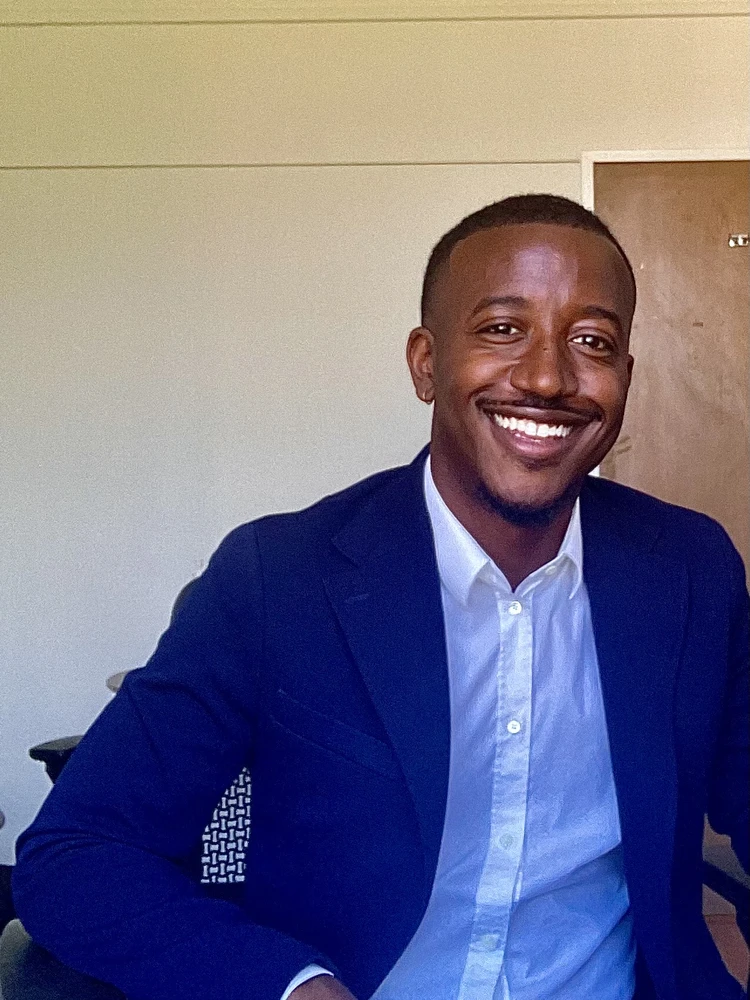
The Department of African American Studies is pleased to announce that we have another Postdoctoral Research Associate, Dr. Kevin Rigby Jr, joining the team for the new 2025-2026 academic year!
We wanted to learn a bit about Dr. Rigby to gain some insight on what drew him to the U of I Chancellor's Postdoctoral Research Associate program. Here's what he had to say:
1. What drew you to the University of Illinois Chancellor’s PDRA position within AFRO?
What drew me most to this position is its deliberate structure. The reduced teaching load, robust research and technical support, and the fellowship’s emphasis on scholarly development signal a genuine investment in postdoctoral scholars as researchers, not simply as temporary instructors. That structure tells me the university sees this as a time for bold, ambitious work, and I want to take full advantage of it.
It is also deeply meaningful to me, in the context of a research-based fellowship, to be affiliated with an African American Studies department as such. I hold three degrees in the field, and I value Black Studies for its own genealogy, methods, internal debates, conceptual scaffolding, and ethical commitments. It is important to be in a place where those things are understood as constitutive of a discipline in their own right, rather than as secondary attributes of other fields. That intellectual freedom, the ability to do the work and ask the questions most true to my training and preoccupations is something I know AFRO can offer.
The department’s standing within the university, its exceptional faculty, and the unparalleled library and archival resources make Illinois an ideal setting to push my research forward while remaining grounded in the disciplinary home that has shaped me.
2. What research area do you specialize in?
My scholarship sits at the intersection of Black political theory, theories of antiblackness, contemporary Black protest, and psychoanalytic theory. At its core, my work examines how the ways we see, interpret, and give meaning to Black protest are shaped, and often constrained, by modes of knowing structured through antiblackness. I’m interested in the relationship between political imagination and political impossibility: how Black protest is not only narrated within certain limits, but also how it can unsettle the very frameworks through which we recognize something as “political” at all.
My first book project, At the Limits of the Political: Reading Contemporary Black Protest, engages moments from the Movement for Black Lives to offer a different reading of protest. Rather than treating protest as a pathway toward liberal inclusion or reform, I argue that Black protest often exposes the structural incoherence of political life itself. This approach allows me to think not just about what protest can accomplish, but about what it reveals regarding the conditions of Black life, state power, and political thought.
3. What do you hope to bring to the African American Studies program?
I hope to bring a critical, interdisciplinary approach to Black Studies that treats theory as more than a descriptive tool. For me, theory is deeply connected to the work of worldmaking, structural analysis, and rethinking what counts as knowledge. My research takes seriously the idea that Blackness is a mode of thought in its own right, irreducible to identity categories or even to historical experience alone. This perspective opens up questions about how Black thought engages with political philosophy, psychoanalysis, and critical theory in ways that both unsettle and expand those traditions.
I also bring a commitment to intellectual community building. Having worked in both academic and organizing spaces, I value environments where ideas are tested in conversation, where students and colleagues alike are encouraged to think beyond disciplinary boundaries, and where the stakes of our work remain connected to the broader political worlds we inhabit.
4. What do you wish to ascertain from your time here at the U of I?
My primary goals are to publish several articles from my current research, complete my first book proposal, and expand the scope of my long-term research agenda. I’m excited to teach a course in the department, not only to share my work but to engage with students whose insights often reshape how I think.
I’m also eager to learn from my colleagues in AFRO and across the university. This fellowship offers a unique chance to be in sustained dialogue with scholars whose work challenges my own in productive ways. That kind of exchange can sharpen theoretical commitments, open new research directions, and help me think about how to position my scholarship to have the widest possible intellectual and public reach.
5. Any hidden talents, hobbies, or interesting facts about yourself you wish to share?
Before I entered academia, I worked as a community organizer on campaigns ranging from union drives for gig workers at airports to youth-led racial justice movements in Detroit. That experience continues to shape the urgency and groundedness of my scholarship—it’s impossible for me to separate theoretical work from the lived political struggles that inform it. Outside of research, I’m drawn to nature, travel, and food, especially as ways of encountering a place’s history, culture, and art.